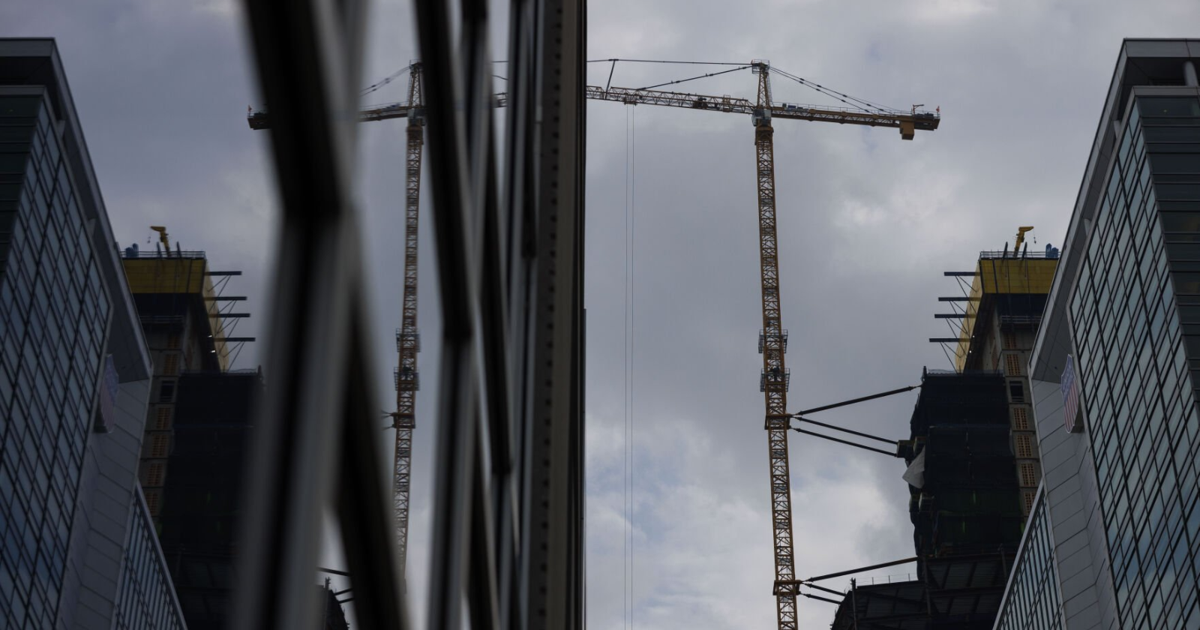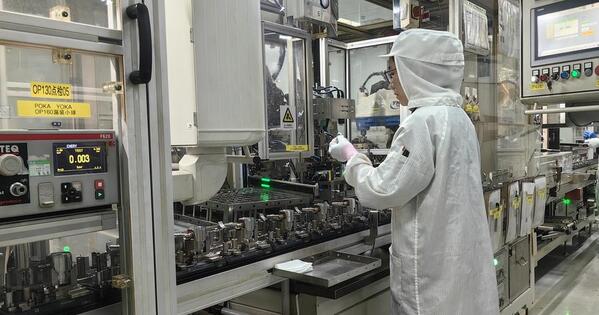
In an “unflinching” economic report card, the Greater Omaha Chamber has found the metro ranks near the bottom quarter compared to a group of 22 peers with which it competes for jobs, talent and business investment.
The report found Omaha to be a leader among those cities in quality of life, with top-tier scores in cost of living, public safety and arts and culture. It also outpaces the region and nation in GDP growth, has low energy costs, low unemployment and has reduced poverty.
But it is not growing its workforce, jobs or wages fast enough, and it is losing college graduates to other places. And high tax burdens and educational attainment gaps are drags on growth, the report says.
“The truth is, while Omaha’s strengths are real and substantial, our overall competitiveness ranks us in the bottom quarter of these metro comparisons,” said the report prepared in partnership with the University of Nebraska-Lincoln Bureau of Business Research. “That reality must be confronted with urgency and determination.”
The report echoes the findings of a recent analysis commissioned by Omaha’s Aksarben Foundation, which found both Omaha and Lincoln trailing seven peer cities in employment and wage growth. A World-Herald analysis which included a more regional group of peers found Omaha similarly lagging in comparison.
The chamber report includes a much larger group of cities and ranks all 23 cities in nine different subject areas, among them growth, inclusivity, human capital, entrepreneurship and the cost of doing business.
The chamber in recent years has worked with UNL to produce the annual “barometer,” intended to offer insight into where chamber leaders need to put their focus and resources. But while the report card is usually used internally, the chamber is releasing this year’s report publicly to sound the alarm over the metro area’s lack of competitiveness.
“The stark reality is that Greater Omaha must grow faster — faster in employment, faster in wages, faster in residents,” said Heath Mello, president and CEO of the chamber. “That is the challenge before us.”
The new report includes nearly all the metropolitan peer cities in the Aksarben and World-Herald comparisons, plus nearly a dozen more.
In all, the comparison group included Boise, Salt Lake City, Denver, Minneapolis, Oklahoma City, Tulsa, Des Moines, Austin, San Antonio, Kansas City, Fayetteville, Madison, Milwaukee, Grand Rapids, Indianapolis, Nashville, Cincinnati, Columbus, Buffalo, Pittsburgh, Raleigh and Greenville.
When it came to overall score, the report ranked Omaha 18th, ahead of only Greenville, Grand Rapids, Milwaukee, Buffalo and Des Moines, which ranked last among the cities. Omaha’s overall ranking was unchanged from the previous year.
In some subject areas, Omaha increased its numerical score over last year only to see its rank slip due to the competitiveness of the other cities.
“In today’s competitive environment, standing still means falling behind,” the report said.
Omaha’s highest score was for quality of life, ranking eighth. On five other metrics, it ranked near the middle, including on growth, inclusivity, innovation, entrepreneurship and infrastructure.
Its bottom-tier scores were in business costs (15th) and human capital (20th).
While Omaha ranked near the middle in the growth category at 13th, its employment growth between 2021 and 2024 was surpassed by all of the cities except Milwaukee. Its growth ranking was boosted by ranking fifth best in GDP growth and unemployment rate.
Omaha’s low human capital score was dragged down by a ranking of 21st in growth in college graduates aged 25-34. It also ranked below average in growth of residents aged 20 and older. Conversely, it ranked among the best in high school and college attainment and labor force participation.
Additionally, Omaha’s combined personal income and sales tax rates ranked 21st of the 23 cities, ahead of only Greenville and Buffalo. Such high tax rates can be a drag on growth of human capital, the study says.
Omaha’s middling innovation score included an eighth-place score in share of jobs in information technology industries but a last-place ranking in patents.
Omaha’s below-average ranking in cost of doing business was primarily driven by a 19th-place ranking in business tax rates. Its cost of labor ranked eighth and energy costs ranked sixth.
Omaha’s high ranking in quality of life included top-tier rankings in commute time (second), violent crime (third), arts and culture (second, as measured by arts and culture employment). The only drags on the ranking were climate (18th), transit (16th) and natural recreation amenities (17th).
Overall, the report said policymakers must seek change if the city is going to alter its trajectory.
“From City Hall to the State Capitol to Washington, D.C., economic development and workforce policy must be top of mind for our elected officials in order for us to create a ‘pro-growth’ environment and compete against the best of the best,” the report says.
Mello in a statement echoed that, saying it will take focus, collaboration, determination and innovative strategies from all stakeholders for the metro to harness its strengths and tackle its weaknesses.
“The message from this year’s barometer report is clear: our future competitiveness will not be given to us,” Mello said. “It will be earned, together.”
cordes@owh.com, 402-444-1130, twitter.com/henrycordes
The business news you need
Get the latest local business news delivered FREE to your inbox weekly.
* I understand and agree that registration on or use of this site constitutes agreement to its user agreement and privacy policy.
Henry J. Cordes
Reporter – Metro News
Get email notifications on {{subject}} daily!
Your notification has been saved.
There was a problem saving your notification.
{{description}}
Email notifications are only sent once a day, and only if there are new matching items.
Followed notifications
Please log in to use this feature
Log In
Don’t have an account? Sign Up Today



